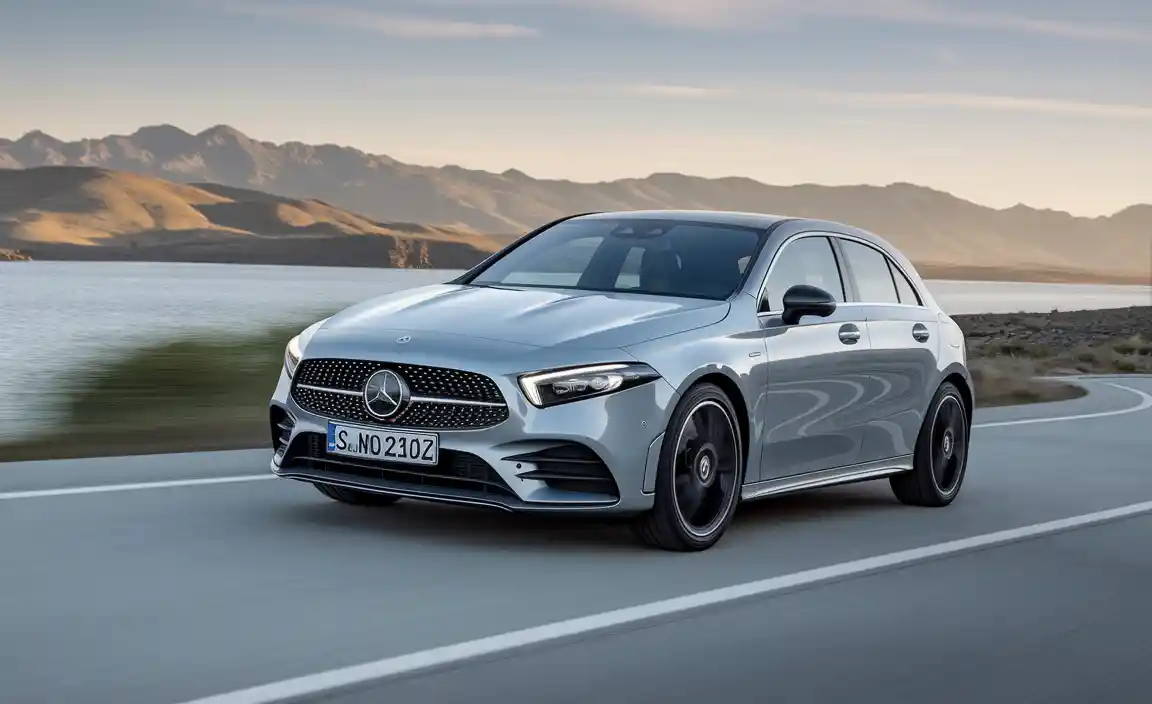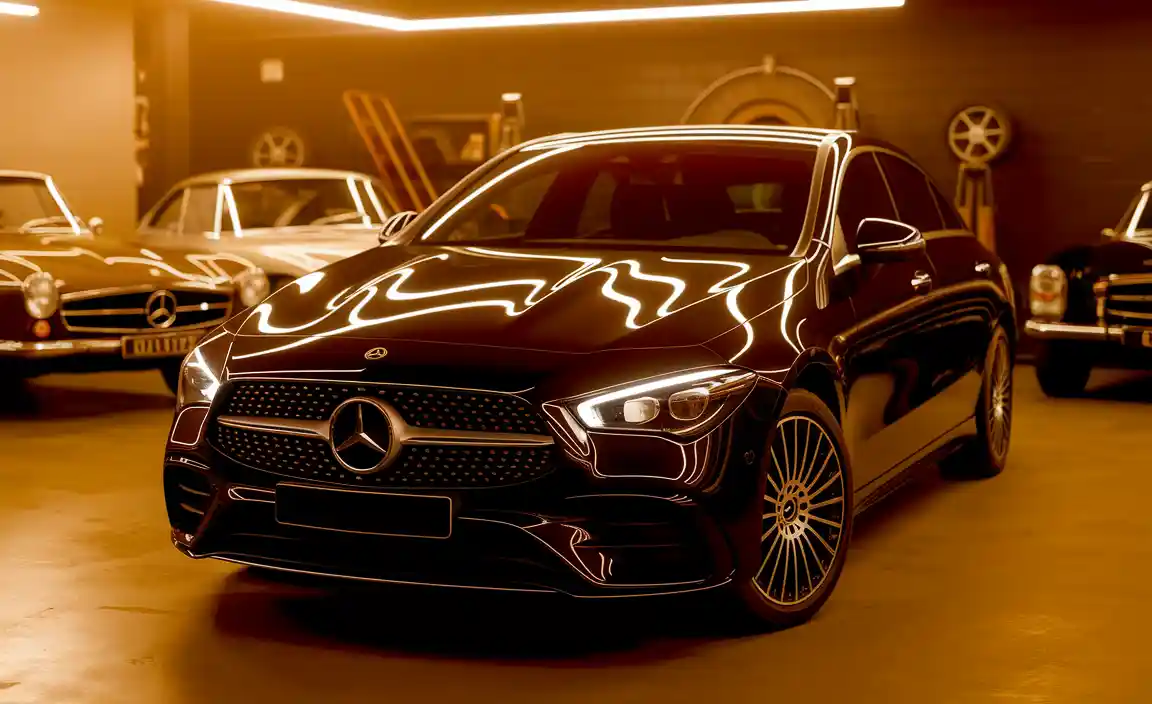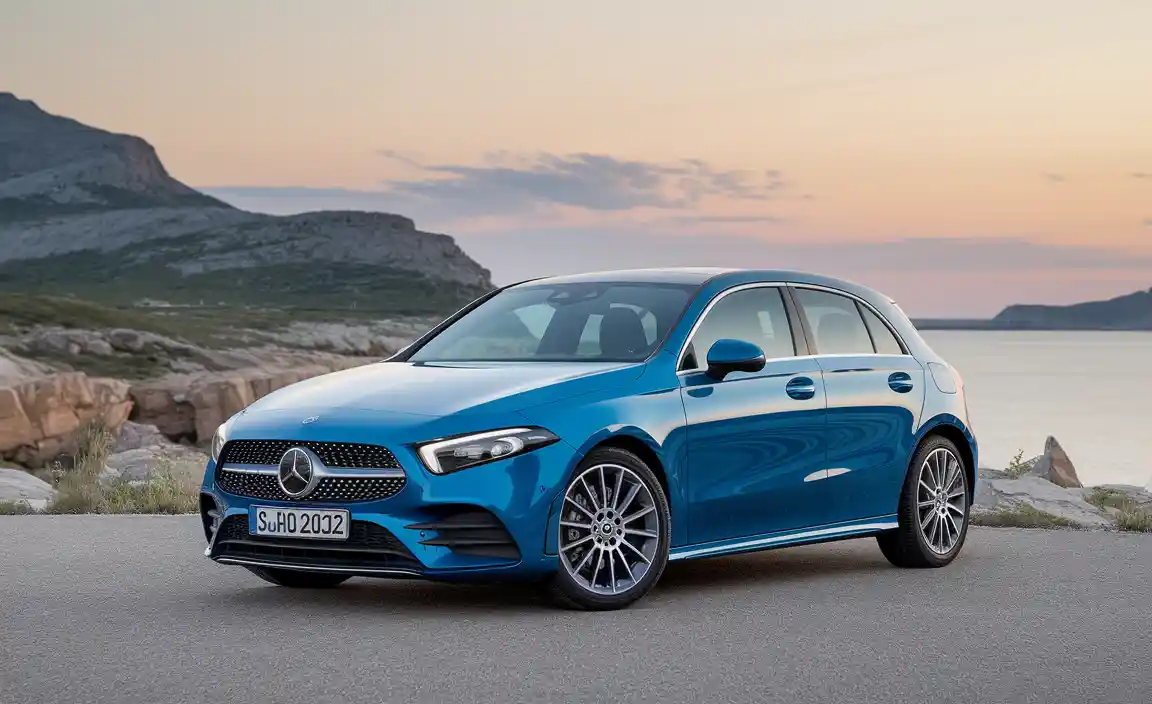Let’s be honest—it’s always a little sad when a favorite goes away. And for many of us who’ve loved the Mercedes A-Class, hearing that it won’t have a successor stings a bit. But there’s more to this story than a simple farewell. Mercedes-Benz is shifting gears, and the road ahead might be even more exciting.

Overview Of The Mercedes A-Class
The Mercedes A-Class made waves as an affordable entry point into the world of premium cars. It was stylish, compact, and packed with high-end tech—perfect for city drives or weekend getaways. Whether it was the A-Class hatchback or the A-Class sedan, it felt like a big luxury car in a smaller package.
And let’s not forget its standout features—Android Auto, clean design, smooth torque delivery, and the unmistakable Mercedes feel. It attracted both first-time buyers and long-time brand fans.

A Legacy In The Luxury Compact Segment
The fourth-generation A-Class pushed boundaries. With AMG versions turning up the heat and hybrid powertrains enhancing efficiency, it made compact cars cool again. It brought younger drivers into the fold of a traditionally more mature luxury brand.
The A-Class even took the fight to the BMW 2 Series and Alfa Romeo compact models. As a premium brand, Mercedes-Benz made sure every A-Class felt refined, not just entry-level.
Key Features And Appeal
You got the latest reviews praising its advanced car insurance options, sleek digital cockpit, and sharp handling. The car came with advanced powertrains, a choice of efficient gasoline and mild-hybrid options, and even a spicy AMG model for those craving extra power.
It also sat comfortably beside models like the Mercedes CLA, Mercedes GLA, and Mercedes GLB in the Mercedes lineup, proving its worth among giants.

Reasons For Discontinuation
But now, change is coming. Mercedes-Benz has decided the current A-Class will be the last of its kind. Let’s dive into why that is.
Shifting Market Demands
Drivers are choosing crossovers, electric models, and tech-heavy vehicles. The traditional hatch or small sedan is slowly losing ground. Even in Europe, the compact car market is shrinking.
Focus On Profitability
According to Markus Schäfer and CEO Ola Källenius, the brand needs to make smarter business choices. Smaller models bring in less revenue compared to larger luxury models like the Mercedes-Benz E-Class, GLC, or S-Class.
Margins matter, especially in a post-pandemic, EV-hungry world.
Increasing Competition
Let’s face it—the car maker world is crowded. From Alfa Romeo to Tesla, competition is fierce. And with tech giants pushing into electric vehicles, automakers need to stay nimble.
Mercedes-Benz’s Strategic Shift
The A-Class going away isn’t a retreat—it’s a refocus. Mercedes-Benz is realigning priorities.

Emphasis On Higher-End Models
Bigger, more luxurious cars mean bigger returns. Think Mercedes-Benz S-Class, GLC, and the upcoming new CLA. These cars wear the three-pointed star proudly, offering rich features and strong brand recognition.
Advancements In Electric Vehicle Innovation
The future is electric. Mercedes is going all-in on electric mobility, and that means streamlining existing platforms. The new MMA platform will be the base for compact electric models, including the next-gen Mercedes-Benz CLA and possibly future crossovers.
This doesn’t mean small cars are dead. They’re just evolving—with an electric motor under the hood.
The Future Of Mercedes-Benz
Mercedes isn’t just reacting—it’s planning. Their strategy is clear: move upmarket, simplify the lineup, and electrify everything.

Investment In Electric Mobility
Mercedes has committed billions to EV innovation. They’re targeting a fully electric vehicle lineup sooner than many rivals. With options like the Mercedes EQ series, the company is positioning itself as a leader in the electric luxury space.
Streamlining Product Lineup
Fewer models, more impact. That’s the game plan. Models like the Mercedes GLB, GLC, and E-Class will continue to evolve. Meanwhile, the entry-level range will see fewer nameplates—but more focus on quality and advanced tech.
Focus On Flagship Models
Expect more high-tech magic from flagship lines. AMG models, the S-Class, and future MMA platform vehicles will showcase cutting-edge features, connected tech, and premium design.
Impact On The Automotive Industry
The A-Class story is part of a bigger trend.
Industry Trends Towards Electrification
More automakers are retiring smaller models and pivoting toward EVs. The rise of the electric model isn’t just about climate—it’s about performance, cost efficiency, and tech appeal.
Influence On Competitors
Rivals are watching. Expect brands like BMW, Audi, and even Alfa Romeo to rethink their strategies. The pressure to innovate is real, and Mercedes is raising the bar.
Conclusion
So yes, the Mercedes A-Class won’t have a successor—at least not in the traditional sense. But its spirit? That’s not going anywhere. It helped usher in a new generation of Mercedes fans, and its DNA will live on in smarter, sleeker, electric versions of tomorrow’s cars.
If you’re still eyeing the current generation A-Class, now’s the time. It’s a slice of history—and a hint of what’s to come. As the German automaker steers toward the future, one thing’s clear: the A-Class isn’t disappearing. It’s transforming.
FAQs
1. Why Does The Mercedes A‑Class Won’t Have A Successor?
Because Mercedes wants to reduce model complexity and focus on more profitable vehicles like SUVs and luxury sedans, they decided not to develop a new A-Class after the current generation.
2. When Will Production Of The A‑Class End?
Production of the current A-Class generation will wrap up by late 2025 or early 2026, depending on region, marking the end of both hatchback and sedan body styles.
3. Is The CLA Replacing The A‑Class?
Yes, the Mercedes CLA is set to become the brand’s new entry-level compact model, riding on the MMA platform in both electric and mild‑hybrid versions.
4. What Is The MMA Platform That Replaces The A‑Class?
The MMA (Mercedes Modular Architecture) platform is an “electric-first” chassis that supports compact EVs like the next CLA, GLA, and GLB—designed to replace the MFA used by the A-Class.
5. Will There Ever Be An Electric A‑Class Successor?
Not under the A‑Class name. While Mercedes is developing compact EVs on the MMA platform, the A-Class itself won’t return—even in electric form.
6. Why Isn’t Mercedes Offering A New Hatchback After The A‑Class?
Because hatchbacks are less popular globally—especially in China and North America—Mercedes chose to focus on SUVs and sedans that sell across all major markets.
7. Are AMG Versions Of The A‑Class Also Discontinued?
Yes, high-performance variants like the AMG A45 and A35 will also end with the last A‑Class generation—since no successor is planned.
8. How Does Discontinuing The A‑Class Fit With Mercedes’s EV Strategy?
Dropping the A‑Class simplifies the lineup and frees up resources to fast-track EV and hybrid models, aligning with Mercedes’s ambition to go fully electric by 2030.
9. Will There Be A ‘Baby G‑Class’ Replacing The A‑Class?
In a way, yes. Mercedes is developing a compact, more rugged sibling—sometimes referred to as the “baby G‑Class”—built on a bespoke platform for niche off-road markets.
10. What Models Will Serve As The New Entry Level After A‑Class?
The new compact lineup will include the CLA sedan and shooting brake, the GLA and GLB (with ICE and EV variants), and potentially the baby G‑Class—all built on the MMA platform